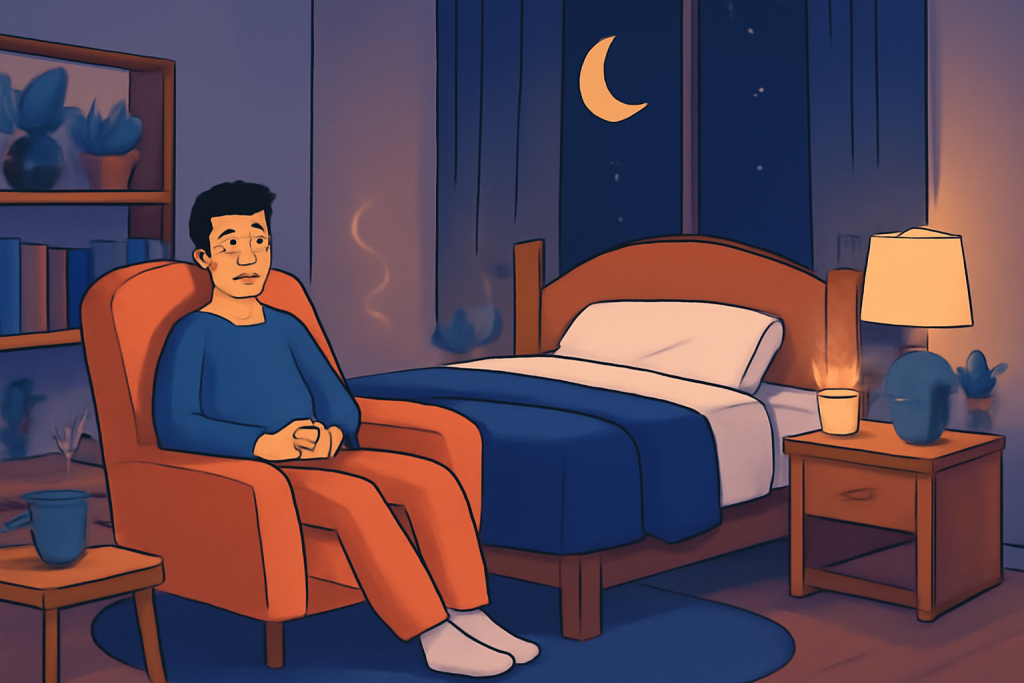Establishing an effective evening routine to recharge is more crucial than ever. With increased stress from work, family, and digital distractions, many people find it difficult to wind down properly. Creating a structured, calming evening ritual is no longer a luxury—it’s a necessity for maintaining mental and physical health. This guide will explore emerging strategies and science-backed practices to help you build an evening that genuinely helps you recharge and restore your energy.

Why Your Evening Routine Matters
Research shows that the activities we engage in before bedtime significantly influence our quality of sleep and next-day productivity. A 2022 study published in the journal Sleep Health revealed that people with consistent evening routines reported better sleep quality and lower stress levels (Sleep Health, 2022). Unfortunately, many evening habits—like doomscrolling social media or binge-watching shows—do the opposite, tricking the brain into staying alert.
The good news is, a thoughtfully crafted evening routine doesn’t require hours of effort. In fact, even just 30-60 minutes of intentional, relaxing activity can prepare your body and mind for rest and rejuvenation.
Components of an Effective Evening Routine
1. Keep a Consistent Sleep Schedule
Going to bed and waking up at the same time—even on weekends—helps regulate your body’s circadian rhythm. According to Dr. Mike Gradisar, a sleep psychologist, “sleep loves structure” (Gradisar, 2023). Setting a fixed bedtime tells your body when it’s time to slow down and when it’s time to get going, improving your overall sleep quality.
2. Screen Curfew: Limit Digital Exposure
Screens emit blue light, which interferes with the body’s production of melatonin, the hormone that induces sleep. Experts recommend turning off devices at least an hour before bed. A 2023 report by the Sleep Foundation emphasized that even brief blue light exposure in the evening can delay sleep onset by more than an hour in some individuals (Sleep Foundation, 2023).
Instead, swap your phone for a book, or listen to an audiobook or calming music. Using a real alarm clock instead of your phone also eliminates the temptation to scroll in bed.
3. Wind Down With Mindful Activities
Incorporating calming techniques into your evening can significantly reduce stress and prep your body for deep sleep. Try:
- Meditation or deep breathing exercises (even just five minutes)
- Light stretching or yoga
- Writing in a gratitude journal
- Reading fiction or poetry
A 2024 study published in Frontiers in Psychology found that mindfulness-based activities reduced cortisol levels by 21% and improved participants’ sleep latency—the time it takes to fall asleep (Frontiers in Psychology, 2024).
4. Set the Scene: Create a Restful Environment
Your bedroom should feel like a sanctuary. Keep the room cool (65–70°F is optimal), block out noise with earplugs or white noise, and use blackout curtains to eliminate light. Investing in high-quality bedding and minimizing clutter can also make a big difference in how easily you fall and stay asleep.
Don’t underestimate the power of scent. Lavender, chamomile, or cedarwood essential oils are known for their calming properties. Diffusing them before bed can enhance your wind-down ritual.
5. Plan Tomorrow Today
One underrated yet powerful practice is planning the next day before bed. Spending just 10 minutes outlining your top priorities can reduce anxiety and help you sleep better. Whether it’s reviewing your calendar, setting out your clothes, or making a to-do list, you’ll go to bed with a clearer mind.
Hot Trends Shaping Evening Routine To Recharge
Digital Detoxes Are Becoming Mainstream
In an era of 24/7 connectivity, the digital detox is gaining traction. Many people are committing to “no screens” for an hour or more before bed. This movement has been backed by influencers and wellness experts who report dramatic improvements in sleep and mental clarity.
A personal experiment shared by Verywell Mind detailed how a one-week digital detox improved mood, focus, and quality of sleep (Verywell Mind, 2025). The participant avoided screens after 8 p.m. and reported waking up more refreshed and productive.
The Rise of Silent Walking
Silent walking—walking without music, podcasts, or even a phone—is another emerging trend. While it can be done at any time, it’s especially powerful in the evening when it helps to decompress and mentally transition from work mode to rest mode.
According to Tom’s Guide, those who practiced silent walking in the evening for a week experienced better mental clarity, reduced anxiety, and a stronger sense of mindfulness (Tom’s Guide, 2025).
Integrating Biohacking Tools
If you’re looking to take things a step further, biohacking tools like blue-light blocking glasses, weighted blankets, and sleep tracking apps are becoming staples in modern evening routines. These tools help optimize your body’s transition into rest mode.
Weighted blankets, for example, have been shown to reduce nighttime movement and stimulate the production of serotonin and melatonin (Mayo Clinic, 2023).
Building a Personalized Evening Routine
There’s no one-size-fits-all formula, but here’s a simple template to help you get started:
Evening Routine to Recharge Template (60 Minutes Total)
- 8:30 PM – Put away screens, dim the lights
- 8:35 PM – Light stretching or yoga (5–10 minutes)
- 8:45 PM – Take a warm shower or bath
- 9:00 PM – Read or journal
- 9:20 PM – Use essential oils or a diffuser
- 9:30 PM – Practice deep breathing or a short meditation
- 9:45 PM – In bed, lights out
Experiment with this structure and adjust it based on what helps you unwind most effectively.
Avoid These Common Mistakes
- Eating Too Late: Digestion interferes with sleep, so avoid large meals within two hours of bedtime.
- Excessive Alcohol: While alcohol may make you drowsy, it disrupts REM sleep and leads to poorer sleep quality.
- High-Intensity Workouts: Save intense exercise for the morning or afternoon; opt for yoga or walking in the evening instead.
- Overthinking: Ruminating in bed makes it harder to fall asleep. Journaling or brain dumping before bed helps quiet the mind.
Final Thoughts
Designing an evening routine to recharge doesn’t have to be complicated or rigid. The key is consistency and finding what works for you. With just a few changes—cutting screen time, adding mindfulness practices, or even taking a short silent walk—you can dramatically improve how you feel when you wake up.
Your evening is an opportunity, not just a leftover chunk of the day. Treat it as your prime time for restoration. Start small, track how you feel, and build from there. Your future self will thank you.
References
- Sleep Foundation. (2023). Bedtime Routine for Adults. Available at: https://www.sleepfoundation.org/sleep-hygiene/bedtime-routine-for-adults (Accessed: 20 May 2025).
- Verywell Mind. (2025). I Tried a Digital Detox Every Night Before Bed for a Week—Here’s What Changed. Available at: https://www.verywellmind.com/i-tried-it-digital-detox-11727179 (Accessed: 20 May 2025).
- Tom’s Guide. (2025). I Tried 60 Minutes of Silent Walking Every Day for One Week—Here’s How It Helped Boost My Mental Stamina. Available at: https://www.tomsguide.com/wellness/fitness/i-tried-60-minutes-of-silent-walking-every-day-for-one-week-heres-how-it-helped-boost-my-mental-stamina (Accessed: 20 May 2025).
- Frontiers in Psychology. (2024). Mindfulness Reduces Cortisol and Improves Sleep. DOI: 10.3389/fpsyg.2024.01144.
- Mayo Clinic. (2023). Weighted Blankets: Do They Help with Sleep?. Available at: https://www.mayoclinic.org/healthy-lifestyle/adult-health/expert-answers/weighted-blanket (Accessed: 20 May 2025).









